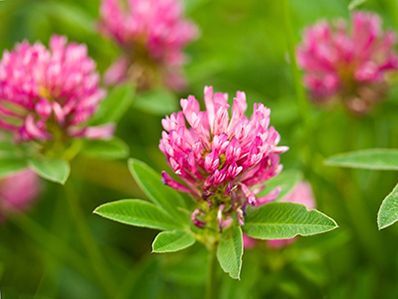Vital Strategies for Women’s Health
authored by Taylor Appel, Registered Herbalist (AHG)
Women’s bodies consist of a unique biochemical design that influences our ability to thrive. If we take the time to understand our female biological needs and make more mindful lifestyle choices, we can cultivate vitality and live our lives to the fullest. As we honor the women in our lives during Breast Health Awareness Month (October), we look at women’s health in general and offer research-backed strategies for living a vital and vibrant life.

One of the more shocking statistics is that about 1 in 3 women will die of heart disease.1 Women also suffer from strokes more often than men (around 55,000 more women than men per year), and have a much higher rate of debilitation post stroke. Additionally, women who use or have used birth control, are or have been pregnant, and those that use or have used hormonal replacement therapies are at an even greater relative risk for stroke.1 These harsh truths accentuate the drastic need for women-centered preventative care plans and increased education on how to keep these statistics from becoming our own personal reality. The good news is that many of the conditions that women are susceptible to are preventable if the right steps are taken at the first signs of imbalance. By taking a prophylactic approach, women can optimize health and decrease risk for disease.
There are a few key areas of health, along with others such as stress management and spirituality, that women can focus on to make the greatest impact in their health. Diet, exercise, and botanicals are at the top of the list. Creating healthier daily habits can have profound effects over time and may even help prevent future health conditions. Take time each day to integrate these helpful tips to optimize health and cultivate vitality.

Focus on Nourishment
Wholesome, nutritious foods can heal us from the inside out. By focusing on heart-healthy and antioxidant rich foods, such as eating a rainbow of colors each day, we can help prevent unwanted disease and other health challenges. Having a well-nourished body is like having compost-rich soil -- it is packed with the elements needed to give us strength to recover and adapt when the inevitable weeds (unwanted conditions) arise. There are many foods that nourish our internal ecosystems.
Below is a short list of my personal favorites that are powerhouses in the kitchen and in the body.
Salmon (Preferably wild caught)
Fish, salmon in particular, supplies a tremendous amount of building blocks needed to properly synthesize hormones, including, omega-rich fatty acids, selenium, iodine, taurine, carnitine, and more -- and it’s a high-quality, low calorie protein choice! Studies have even found links between regular fish consumption and better outcomes of metabolic syndrome, diabetes, obesity, hypothyroidism, and evidence shows it may support the transition into menopause as well. Fish is also associated with maintenance of a healthy body weight, normalizing blood-pressure levels, and supporting a proper glucose response.3

Avocados
These delicious fruits are packed with heart healthy fats that can actually help lower LDL cholesterol and decrease the chances of a stroke.2 Avocados contain an enormous amount of potassium, which is intimately related to our coronary health and disease risks. Avocados boast more potassium than bananas per serving and are packed with antioxidant and anti-inflammatory compounds. Avocados provide fiber in the form of short-chain fatty acids, which helps keep our gut health in check and everything running smoothly. One study found that replacing only one serving of margarine, butter, cheese, or processed meat with avocado resulted in a 16% to 22% lower risk of coronary heart disease.2
Whole Grains
Regular consumption of whole grain carbohydrates has been associated with a lower risk of heart diseases and metabolic syndromes due to the nutrient quality of whole grains versus their refined counterparts. Whole grains provide both the germ and bran of the wheat kernel, making it a more complete source of fiber. This supports blood sugar regulation, improved gut health, weight management, and prevalence of various metabolic diseases. Studies show that despite other dietary and lifestyle factors, regular whole grain consumption can facilitate disease prevention.4 Two of my favorite whole grains are quinoa and oatmeal. For more insight and research into the health benefits of whole grains, read our founder Donnie Yance's blog "Health Benefits of Whole Grains".
By integrating these foods into your weekly meal routine, you are supporting both cardiovascular and cognitive health, and actively taking steps toward a healthy, long life.

Get Yourself Moving!
Maintaining optimal body weight is another protective way for women to reduce their risk of heart disease and other metabolic issues. Regular exercise has been found to not only decrease the chances of heart disease, obesity, and other metabolic disorders, but can also provide an outlet for stress reduction. Stress is another known risk factor for heart disease -- especially in women. Finding a routine that works best for you will do wonders in the long run. Choosing an activity that meets your physical needs is just as important as the duration or intensity of the workout. Consistency is key! When you choose an activity that fits your current ability, it will help you establish this healthy habit and have an even more profound effect on your overall health. Try incorporating just twenty minutes of any of the following movement suggestions into your daily routine as a proactive way to avoid cardiovascular disease and metabolic dysregulation:
Dancing
Crank-up your favorite tunes and move to the music! Dancing has been shown to be a great full-body workout that can elevate your mood, improve heart and lung strength, increase muscular strength and endurance, strengthen bones, may help prevent osteoporosis, and much more!5
Walking
Taking a short stroll each day can have profound effects on your overall health. Research notes that taking a brisk, 15-minute walk after meals improves glycemic control and reduces the relative risk for metabolic disorders, such as diabetes.6

Other Movement Ideas
Yoga/pilates, hiking, walking the dog, swimming, getting a standing desk or treadmill for your work space, and choosing to use the stairs in situations when possible are more great ways to make a movement routine part of your day.
For most, exercise can seem like a daunting task, but when we choose an enjoyable activity, we’re much more likely to continue to do it every day. Not only will our heart health and physique improve, but the emotional benefits of working out are truly profound! Just remember, cardio is an important piece of being fit, but strength training is even more essential to cultivating optimal health. It is especially important for women moving through menopause or have osteoporosis, as it has been found to improve bone strength and build muscle more efficiently.
Herbs for Women’s Health
Many herbs have a specific affinity toward women's health and can provide an additional layer of support while moving through life and its transitions, managing stress, and avoiding disease. Historically, the use of herbal medicines within the scope of women’s health dates back thousands of years through its use in Ayurvedic and traditional Chinese Medicine. Botanicals, such as those listed below, have been extensively researched and applied to modern therapeutic rationales.
Fenugreek (Trigonella foenum-graecum)
Fenugreek, specifically the seeds, have been used for thousands of years as a potent medicine across Iran, India, and China. Research has illuminated the incredible anticholesterolemic (bad cholesterol lowering) effects of this plant, as well as its ability to help regulate blood sugar levels. Fenugreek is also known as an anti-inflammatory, anti-tumor, and carminative herb that supports the female reproductive system, helps support proper bone and muscle health, and provides a potential remedy for acid reflux, low breastmilk production, and weight loss (when utilized appropriately in conjunction with other lifestyle changes). Fenugreek has a slightly caramel and bitter flavor profile, and the powder or extract is easily added to smoothies and soups to increase the medicinal value of any meal.7

Red Clover (Trifolium pratense)
The flowering buds of this herb are reminiscent of the colors of the circulatory system, and it has been known by some cultures to represent purification of blood and a treatment for inflammation, which is often associated with the color red. Modern research has revealed the complex therapeutic constituents of this nourishing botanical. Red Clover is specifically recognized for its ability to support women moving through menopause and who suffer from hot flashes due to its phytoestrogenic effects and high mineral content. There is also evidence to suggest it can be supportive for those with high cholesterol levels as well. Additionally, Red Clover has been found to strengthen and increase flexibility within the arteries, aid in lymphatic movement, and support proper liver detoxification.7
Vitex (Vitex agnus-castus)
Vitex, or Chaste Tree Berry, is packed with potent flavonoids and various other phytoconstituents that contribute to its powerful ability to influence the menstrual cycle. From amenorrhea, or the lack of a cycle, to fertility challenges, Vitex has been used for centuries to help normalize a woman's cycle and uterine health by supporting healthy pituitary activity. There is an abundance of research highlighting this botanical’s ability to influence women's health by decreasing premenstrual symptoms, such as cramps, irritability, and bloating, lessen cystic acne breakouts, mitigate hormonal headaches, and help with fluid retention. Vitex can be a wonderful choice for those with low progesterone levels and excess estrogen.7
We utilize these and many other herbs in our formulas at Mederi Center to support women's health on a multitude of levels.
By recognizing the potential risks associated with women’s health, we can be more aware of our daily habits and make choices that align with our highest quality of life. Always consult with your health care practitioner before making any drastic changes to your lifestyle, diet, or botanical regimen. Women are truly awe-inspiring, life-giving beings, and with a deeper understanding of our biological needs, we can live happily and thrive!
Join the Mederi Center community by signing up for our email list! We send several emails a month with product promotions for patients, practical tips for healthy living, blogs written by our practitioners, information about events, and other news. You can unsubscribe at any time.
References
- Garcia M, Mulvagh SL, Merz CN, Buring JE, Manson JE. Cardiovascular Disease in Women: Clinical Perspectives. Circ Res. 2016;118(8):1273-1293. doi:10.1161/CIRCRESAHA.116.307547
- Persky RW, Turtzo LC, McCullough LD. Stroke in women: disparities and outcomes. Curr Cardiol Rep. 2010;12(1):6-13. doi:10.1007/s11886-009-0080-2
- Mendivil CO. Fish Consumption: A Review of Its Effects on Metabolic and Hormonal Health. Nutr Metab Insights. 2021;14:11786388211022378. Published 2021 Jun 3. doi:10.1177/11786388211022378
- Wu H, Flint AJ, Qi Q, et al. Association between dietary whole grain intake and risk of mortality: two large prospective studies in US men and women. JAMA Intern Med. 2015;175(3):373-384. doi:10.1001/jamainternmed.2014.6283
- Merom D, Ding D, Stamatakis E. Dancing Participation and Cardiovascular Disease Mortality: A Pooled Analysis of 11 Population-Based British Cohorts. Am JPrev Med. 2016;50(6):756-760. doi:10.1016/j.amepre.2016.01.004
- Pahra D, Sharma N, Ghai S, Hajela A, Bhansali S, Bhansali A. Impact of post-meal and one-time daily exercise in patient with type 2 diabetes mellitus: a randomized crossover study. Diabetol Metab Syndr. 2017;9:64. Published 2017 Aug 31. doi:10.1186/s13098-017-0263-8
- Marciano M, Vizniak N, 2nd ed. Botanical Medicine. Professional Health Systems; 2019.


